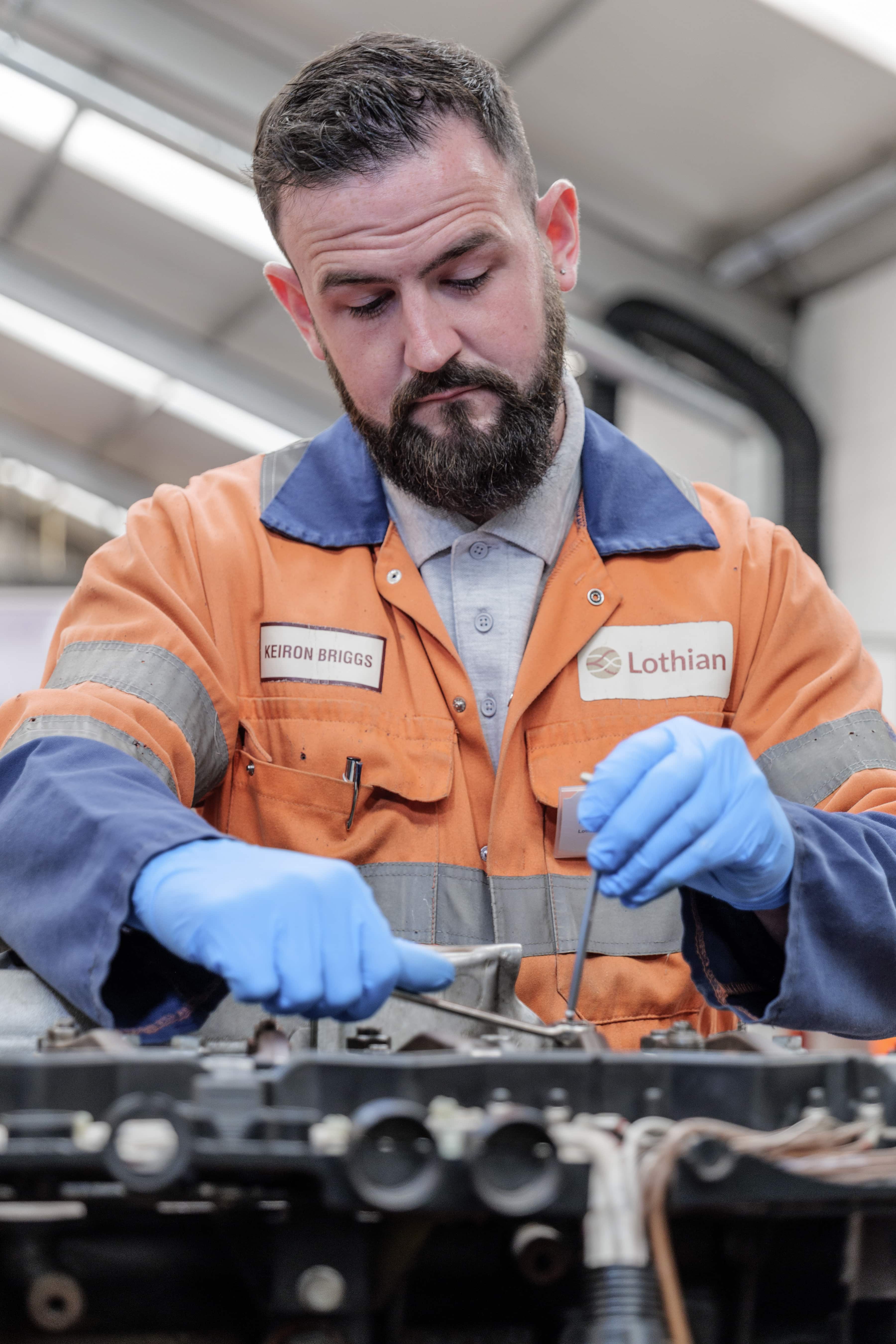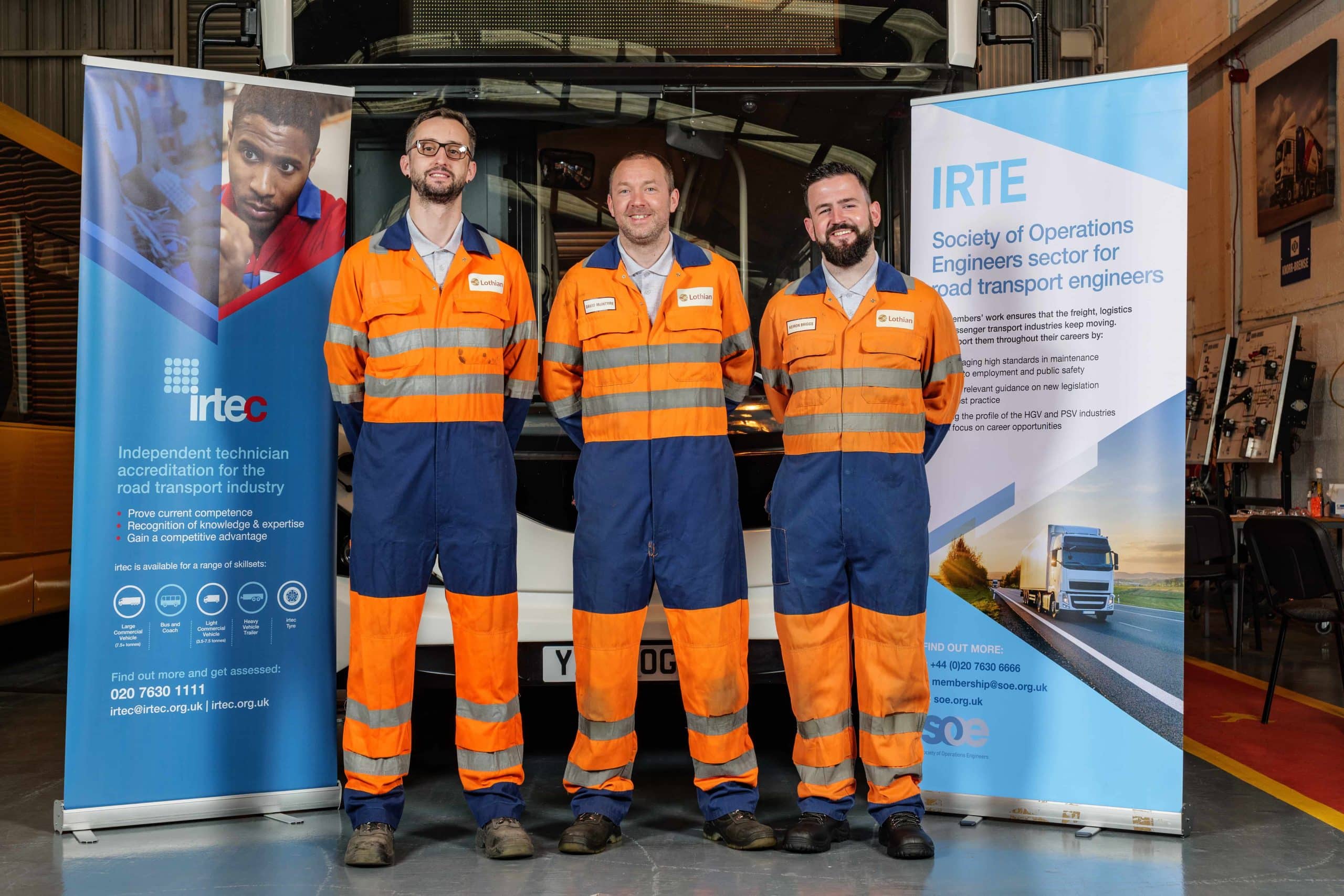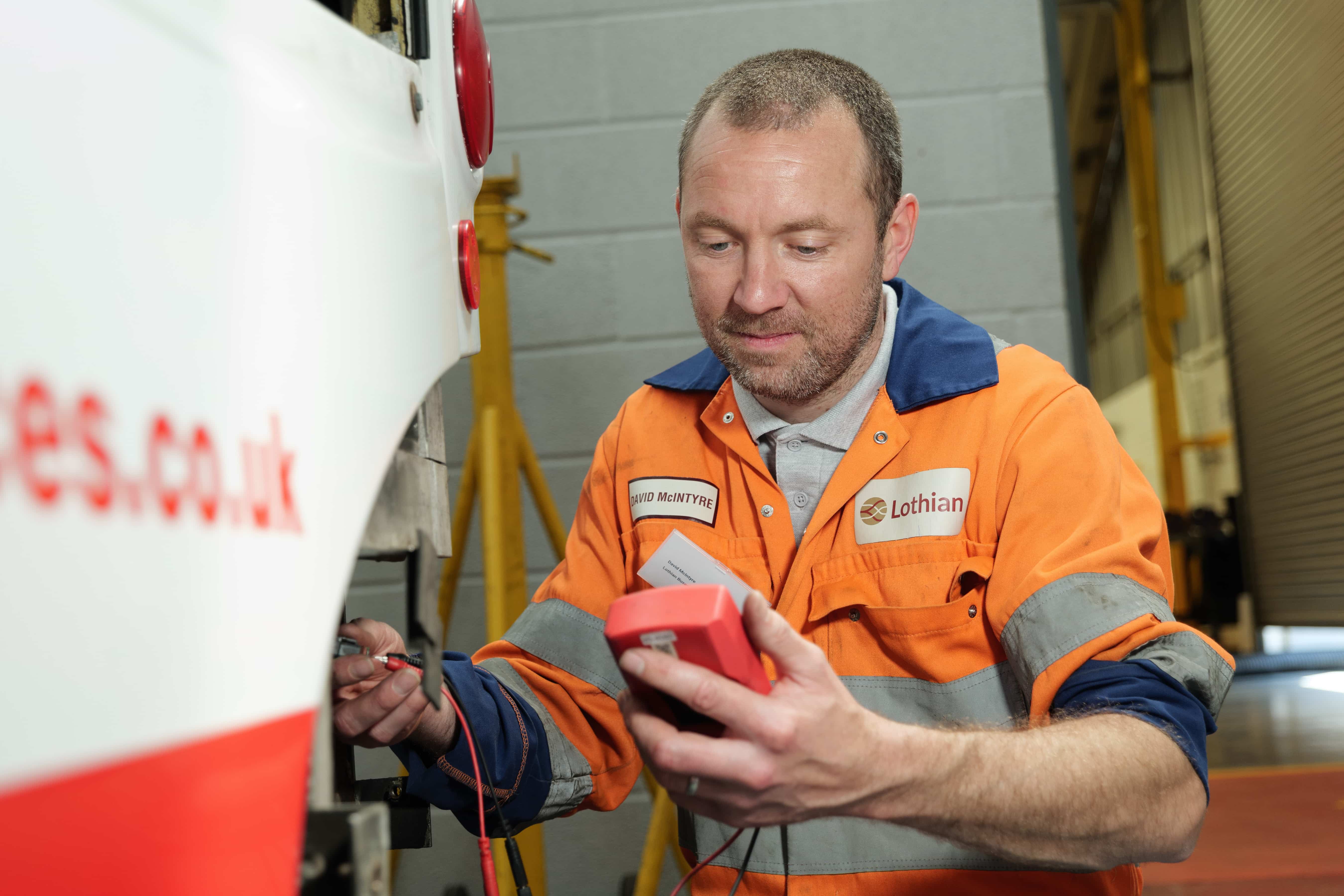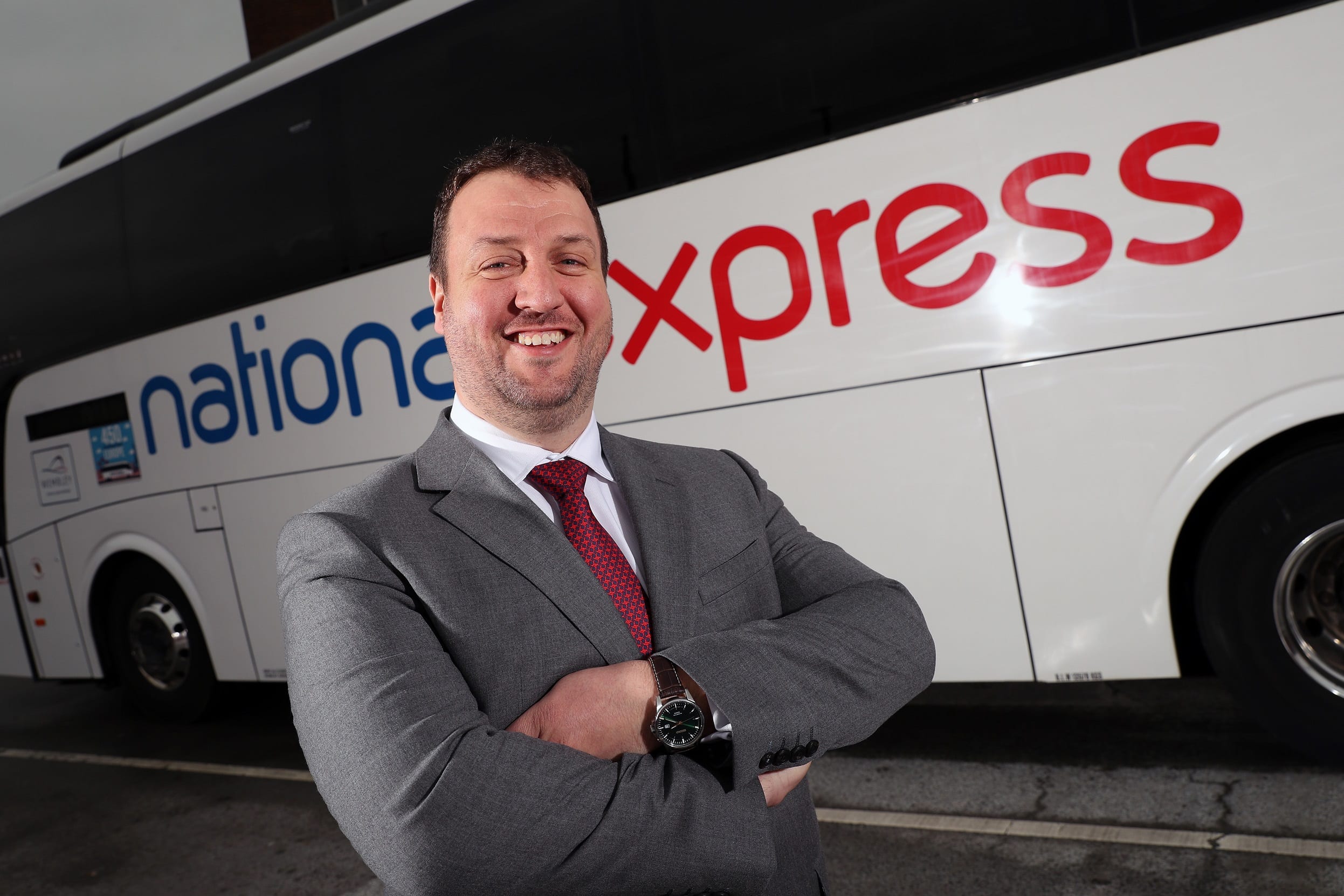routeone interviews Lothian’s Interim Engineering Director Dylan Dastey on what it means to consistently take part in the IRTE Skills Challenge
Representing Lothian at the IRTE Skills Challenge this year were Sean Kenneally for the Bodywork Technician category, David McIntyre in the Electrical Technician category, and Kieron Briggs in the Mechanical Technician category.
In anticipation of the results of the Skills Challenge being published next month, routeone interviews Dylan Dastey, Lothian’s Interim Engineering Director, on why the team took part despite the challenges posed by the COVID-19 pandemic and staff shortages.
This interview has been edited and condensed for clarity.
Q. What are the challenges that come with being one of the smaller competitors in the Skills Challenge competition?
A. I don’t see Lothian as a small operator! As one of the biggest employers in the city it has an outstanding reputation in the bus and transport industry and is an integral part of daily life in and around the capital, enjoying a much-loved place in the hearts and minds of the people of Edinburgh and the Lothians. Although we may send down smaller teams to take part in the competition, we are confident that our colleagues will represent Lothian in the best possible way, maintaining the high standards we set on our garage floors.
Q. How has the pandemic affected your engineers in recent times?
A. I think as an industry, we are seeing a shortage in skilled engineers which has made recruitment extremely difficult. This has been made even more challenging with the new zero-emission technology and industry innovations, meaning colleagues need both a mechanical and electrical skill set to maintain new electric vehicles.
Q. How do you overcome that challenge?
A. At Lothian, we are proud of our robust apprenticeship programme, which allows us to develop our own talent and plan for the future. The on-the-job programme teaches our apprentices the skill set required for a career in the bus industry, including working with evolving technology. We offer comprehensive training programmes which enhance our colleagues’ ability to maintain the level of expertise that is required going forward and to enable them to progress their careers at the company.

A. I’m always keen to be involved in the competition as it allows our engineers to showcase their skills against other operations, raising standards across the industry. Competitions also focus on the positive aspects of our industry and any promotion of the sector, and the skills of those working within it, should always be supported.
Q. Can the Skills Challenge competition be used to address any of the challenges you’ve raised?
A. Any competition or event promoting the industry can always be used to our benefit. Not just for ourselves at Lothian, but for the industry as a whole. By promoting the Skills Challenge, it shows we are always keen to champion the efforts of our colleagues and improve the standards we set around our garages. I would like to think that anyone looking for a career in the bus industry would see this as a positive message.
Q. How did your team feel going into the competition this year?
A. I think as it was all new to the team, they were unsure what to expect from the competition. However, knowing each individual personally, I think they were quietly confident in their own ability and eager to demonstrate what they can offer to the Challenge.
Q. What wider benefits does taking part in the competition have on the Lothian business and its other staff?
A. The competition promotes Lothian’s core values and demonstrates to the wider business that we are always keen to shine a light on our colleagues’ abilities and enable them to showcase their talents wherever possible.
Q. Are there benefits from the ability to network with other industry professionals and operators on the day?
A. Of course. There are enormous benefits from the ability to network with professionals across the industry. Sharing knowledge and experience can only help the candidates taking part on the day. Seeing how each operator’s engineers work helps raise standards across the board during the Skills Challenge and beyond.
Q. Lothian has competed in the Skills Challenge four times previously. What have been its notable achievements in that time?
A. In 2018, my colleague David Leslie won the Top Scoring Electric Driveline Technician award and another of my colleagues, John Buchan, was runner up in the Bodywork Technician category. We are keen to use the opportunity of attending the Challenge to invite colleagues from our teams to test their knowledge against engineers from other organisations, so everyone who attended did so for the first time this year.
routeone also caught up with Wayne Potter, Engineering Manager at Trentbarton, for another perspective. Wayne reveals the operator’s biggest challenge is getting the volume of staff to compete every year, owing to its smaller resource.
“I have been committed to the IRTE Skills Challenge and feel it’s a great opportunity for the staff to showcase their skills and bring them out from the normal,” he says. “It shows that we can compete against all the bigger players in the industry, plus it’s a massive promotion of Trentbarton when we do well. We took awards from the last six out of seven competitions.”



























